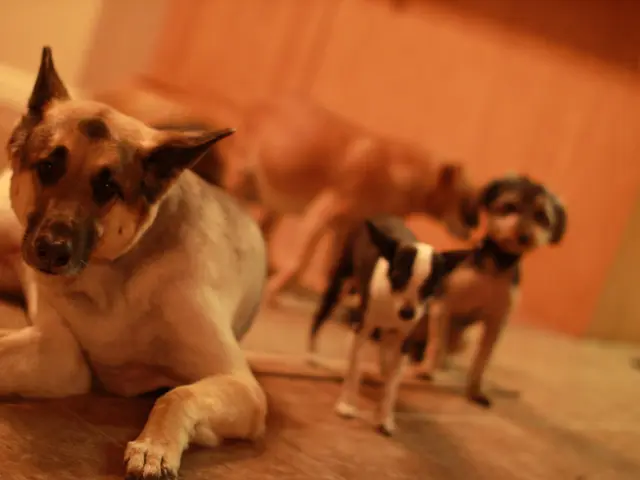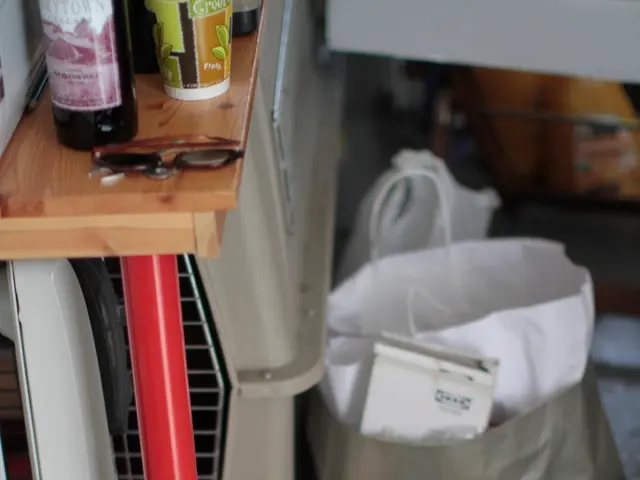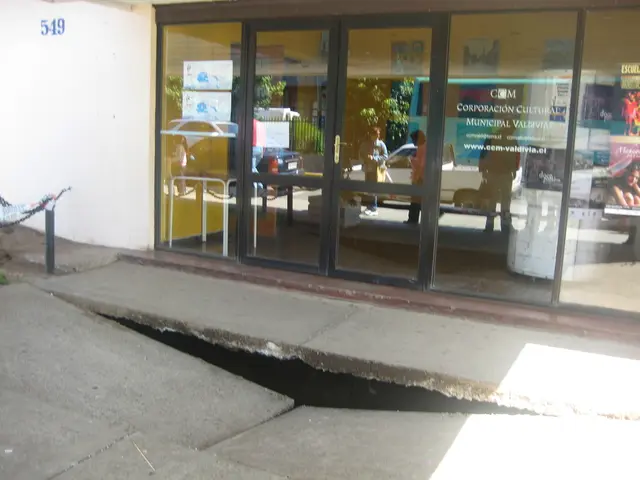Doge Authority revokes funding for University of Wisconsin scientist, saving a modest $866.
Reshaped and Revitalized
Elena Austin's Research Grant Canceled for a Pennies: A Tale of Questionable Efficiency
If you ask Elena Austin, an environmental health scientist at the University of Washington, she'll tell you she's been trying her best to avoid the DOGE grant-slashing website. But, unfortunately, it found her anyway.
DOGE, led by Elon Musk, recently publicized that Austin's grant had been marked for elimination. With over 11,000 grants on display, it proudly calls this collection the "Wall of Receipts."
What's striking about Austin's grant is the advertised savings. In a budget of trillions, significant cost-cutting needs to be in the millions or billions to make an impact. However, terminating Austin's grant saved just $866, according to DOGE's records.
"It's a bit hard to believe, but it's true," Austin shares. "Three years of work behind it, and they canceled it to save $866."
Most of the grants on DOGE's "Wall of Receipts" have a connection to diversity, equity, or social justice work, or research on topics the Trump administration was not in favor of, such as climate change.
Austin, on the other hand, studies air quality in the UW's Department of Environmental & Occupational Health Sciences. She looks at how particulates or chemicals in the air affect people, ranging from school kids to agricultural workers.
Shortly after DOGE listed her grant on their trophy wall, she received a termination email. It stated her grant had been zeroed out "effective immediately" due to the award no longer aligning with the program's goals or agency priorities."
But the work funded by this award is nearly complete. The Environmental Protection Agency had granted her team $548,537 for a multiyear study on whether portable filtering systems have an impact on indoor air that school kids breathe. All but $866, or 99.8% of the total, had been spent.
With the cancellation of her grant, the meeting scheduled to present the findings has also been canceled. "That meeting was to share our results," Austin says. "But now, if it no longer fits their priorities, it seems like maybe they're not interested in knowing the results?"
The cancellation's reasoning remains unclear. I attempted to gather additional information from EPA and its press office; they responded with more boilerplate. "The agency determined that the grant application no longer supports Administration priorities, and the award has been canceled," they stated.
Yet, it's uncertain what those priorities are, and the question remains: Why cancel something that's already done, and then cancel the meeting where the results were to be revealed?
Initially, Austin's research was focused on the effects of wildfire smoke and other particulates on schools in Washington state. Her team was investigating whether bad outdoor air was a significant factor inside classrooms and whether relatively cheap filtering machines could help.
"Given that people spend 85% to 90% of their time indoors, the quality of indoor air is likely to have a significant impact on health, even though it is outdoor air that is regulated," maintained one of her team's papers.
Austin mentioned, "there's nothing in this work having to do with equity or diversity. There isn't an explanation I can think of for canceling it."
Apparently, some of the air monitoring was scheduled to be done with the Yakama Nation. The Yakama were set to be partners, "developing culturally-aware educational material that is in-line with requirements and regulations applicable on Yakama Nation Tribal land." This was intended to ensure the research team did not inadvertently violate tribal sovereignty.
It's conceivable that DOGE canceled this air quality grant due to the phrase "culturally-aware." While it's not as drastic as the Pentagon purging photos of the atomic bomb plane Enola Gay due to the word "gay," it lands on the same questionable side of ideology run amok.
Other scientific grants have also been swept up by DOGE's net due to descriptions containing "flagging words" such as "underrepresented" or "misinformation."
Austin herself is facing larger problems now. Last week, nearly all the staff were laid off at the National Institute for Occupational Safety and Health (NIOSH), as part of the Trump administration's efforts to downsize this agency. NIOSH funds a research unit that Austin co-leads for safety studies in Northwest farming and forestry.
This research unit was set to receive $1.6 million for its work this next year, including a study on pesticide-breathing hazards for workers who do farm spraying. Now, this research is also in jeopardy.
Last week, 19 states, led by Washington and New York, took legal action to try to prevent these cuts, arguing that it is illegal for the administration to unilaterally shut down research programs that were approved by Congress.
Austin plans to write a report, for the schools if nothing else, as well as to try to publish the work from the canceled grant in a scientific journal, so it doesn't go to waste.
In her perspective, the role of the U.S. government in scientific research, which has long been a global leader, now appears to be in limbo.
"We're in a rather difficult spot right now in the research world," Austin shared.
When I visited her lab, another faculty member dropped by to discuss his own research being terminated. The news business typically aims to uncover answers, but this time, I'm left with questions.
Is this being done out of anti-academic spite? A hasty attempt at budget scrubbing? An ideological crusade sent off-kilter by an overly broad AI search? Incompetence?
They canceled a grant to save $866. I can't think of any other conclusion except that the answer to these questions is "yes."
dwestneat@our website
Sources & Insights
- The reason behind the cancellation of Elena Austin's research grant by the Department of Government Efficiency (DOGE) is reportedly due to the agency stating that the grant "no longer effectuates the program's goals or agency priorities" (1).
- This mirrors the pattern seen with other grants and programs terminated by DOGE, where activities were halted with similar reasoning, emphasizing that they do not align with current agency priorities[2].
- Federal Acquisition Regulation allows government agencies to terminate contracts "for convenience," which includes situations where priorities change[5].
- However, the specific case of Elena Austin reflects broader criticisms of DOGE's actions, which some view as arbitrary and damaging to ongoing research and programs (1).
- Elena Austin, an environmental health scientist at the University of Washington, expressed her concern about the DOGE grant-slashing website finding her and her grant being marked for elimination.
- DOGE, led by Elon Musk, publicly displayed Austin's grant on their "Wall of Receipts," boasting significant cost-cutting, yet it saved only $866 according to their records.
- Most grants on DOGE's "Wall of Receipts" have a connection to diversity, equity, or social justice work or research on topics the Trump administration was not in favor of, such as climate change.
- Austin studies air quality in the UW's Department of Environmental & Occupational Health Sciences, focusing on how particulates or chemicals in the air affect people.
- After being listed on DOGE's trophy wall, Austin received a termination email stating her grant had been zeroed out due to the award no longer aligning with the program's goals or agency priorities.
- The Environmental Protection Agency had granted her team $548,537 for a multiyear study on whether portable filtering systems have an impact on indoor air that school kids breathe, and all but $866 had been spent.
- The meeting scheduled to present the findings has been canceled due to the grant cancellation.
- The reasoning behind the cancellation remains unclear, with boilerplate responses from the EPA and its press office.
- Austin's research was initially focused on the effects of wildfire smoke and other particulates on schools in Washington state and whether inexpensive filtering machines could help improve indoor air quality.
- DOGE may have canceled this air quality grant due to the phrase "culturally-aware" or other flagging words, such as "underrepresented" or "misinformation."
- Austin and her colleagues face larger problems due to nearly all the staff being laid off at the National Institute for Occupational Safety and Health (NIOSH), affecting research on pesticide-breathing hazards for workers who do farm spraying. This research is also now in jeopardy.








